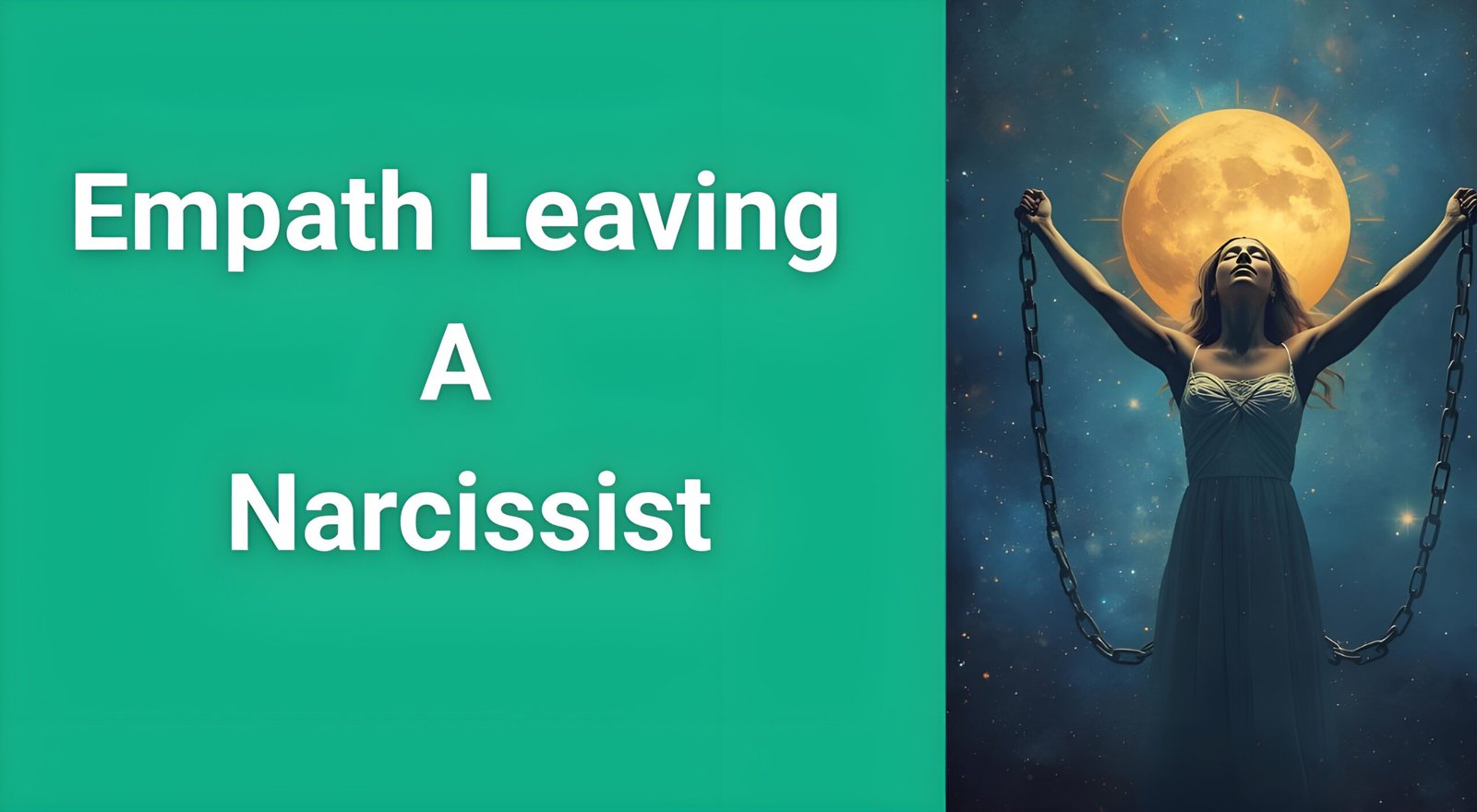If you’re reading this, chances are you’re lying awake at 3 AM wondering: does a narcissist ever regret leaving you? The silence from your ex-partner feels deafening, and you’re desperately searching for signs they miss what you had together. This question haunts millions of narcissistic abuse survivors, and the answer is more complex—and more painful—than you might expect.
- The Narcissistic Mind: Why They Don’t Regret Like You Do
- What Narcissists Actually “Miss” When They Leave You
- The Three Types of “Regret” Narcissists Experience
- The Hoovering Phase: When They Try to Come Back
- The Painful Truth About Narcissistic “Love”
- Red Flags: How to Identify Fake Regret
- The Role of Trauma Bonding in Hoping for Their Regret
- Breaking Free from the Hope They’ll Regret Leaving You
- When Staying Becomes Survival: Resources for Complex Situations
- The Science Behind Narcissistic Emotional Processing
- Moving Beyond the Question: Focusing on Your Recovery
- FAQs About Narcissists and Regret
- Conclusion: The Truth That Sets You Free
The harsh reality is that narcissists don’t experience regret the way emotionally healthy people do. While they may occasionally “regret” losing certain benefits you provided, they rarely feel genuine remorse for the emotional devastation they’ve caused. Understanding this psychological truth is crucial for your healing journey and prevents you from falling into false hope that could delay your recovery.
The Narcissistic Mind: Why They Don’t Regret Like You Do
To understand whether a narcissist ever regrets leaving you, we must first examine how their minds work fundamentally differently from yours. Narcissists lack the emotional equipment necessary for genuine regret, which requires three key components they simply don’t possess.
The Missing Pieces of Genuine Regret
Empathy Deficit: True regret requires the ability to feel another person’s pain and understand how your actions affected them. Narcissists have severely limited empathy, making it nearly impossible for them to genuinely feel sorry for hurting you. They might intellectually understand they caused pain, but they can’t emotionally connect with that reality.
Accountability Resistance: Genuine regret involves accepting responsibility for mistakes and poor decisions. Narcissists operate from a core belief that they’re superior and rarely wrong. Admitting they made a mistake by leaving you would shatter their carefully constructed self-image, something their psyche simply won’t allow.
Emotional Depth Limitations: The type of regret you’re hoping for requires deep emotional processing and reflection. Narcissists typically experience emotions on a surface level, focused primarily on how situations affect them personally rather than the broader emotional landscape of relationships.
What Narcissists Actually “Miss” When They Leave You
While narcissists don’t regret leaving you in the traditional sense, they may experience something that resembles regret when they realize what they’ve lost. However, understanding what they truly miss reveals the selfish nature of their “regret.”
The Supply You Provided
Narcissistic Supply is the constant flow of attention, admiration, and validation that narcissists need to maintain their inflated self-image. When they leave you, they’re not missing you as a person—they’re missing the specific type of supply you provided. This might include:
- Unconditional admiration and praise
- Financial support or lifestyle maintenance
- Emotional labor and relationship management
- Social status enhancement through your achievements
- Sexual gratification on their terms
The Conveniences of Your Relationship
Narcissists often regret losing the practical benefits you brought to their life more than losing you emotionally. They might miss:
- Having someone handle household responsibilities
- The financial security you provided
- Your connections and social network
- The image of stability your relationship gave them
- The ease of having a reliable source of attention
Control and Power Dynamics
Perhaps most importantly, narcissists may regret losing the sense of control and power they had over you. Your devotion, attempts to please them, and willingness to sacrifice your own needs fed their need for dominance. When you’re gone, they lose that specific power dynamic they worked so hard to establish.
The Three Types of “Regret” Narcissists Experience
Understanding the different ways narcissists might experience regret helps you recognize their true motivations and avoid falling for manipulation tactics designed to draw you back.
1. Supply Regret: Missing What You Gave Them
This is the most common form of regret narcissists experience. They realize they’ve lost a valuable source of narcissistic supply and may attempt to hoover you back into the relationship. Signs of supply regret include:
- Sudden attempts to contact you after periods of silence
- Love-bombing behavior similar to the relationship’s beginning
- Promises to change that sound eerily familiar
- Attempts to make you jealous with new relationships
- Playing the victim and claiming they’ve been misunderstood
Reality Check: This isn’t regret for hurting you—it’s regret for losing access to what you provided them. They’re essentially trying to rehire you for a job you quit.
2. Ego Regret: Bruised Pride from Your Success
Narcissists may experience regret when they see you thriving after the relationship ends. This isn’t because they’re happy for your success—quite the opposite. Your improvement challenges their narrative that you needed them to function, creating what psychologists call “narcissistic injury.”
Signs of ego regret include:
- Attempts to sabotage your new relationships or opportunities
- Spreading rumors or lies about you to mutual friends
- Sudden interest in your life when you’re clearly doing well
- Attempts to take credit for your post-relationship success
- Increased hostility or vindictive behavior
Reality Check: They’re not regretting losing you—they’re angry that you’re proving you never needed them in the first place.
3. Replacement Regret: When New Supply Doesn’t Measure Up
Sometimes narcissists experience regret when their new partner doesn’t provide the same level or type of supply you did. Every person offers different qualities, and the narcissist might realize they gave up something valuable when they discarded you.
However, this regret is still entirely self-serving:
- They miss specific services or benefits you provided
- Their new partner may have boundaries you didn’t have
- The new relationship requires more effort than yours did
- They’re comparing partners like objects rather than people
Reality Check: Even this type of regret isn’t about missing you as a person—it’s about missing the particular benefits you offered compared to their current situation.
The Hoovering Phase: When They Try to Come Back
Understanding hoovering tactics helps you recognize when a narcissist’s apparent “regret” is actually manipulation designed to re-establish control over you. Hoovering gets its name from the vacuum cleaner brand, representing how narcissists attempt to “suck” you back into their orbit.
Common Hoovering Tactics
The Apology Tour: They may offer seemingly heartfelt apologies, claiming they’ve realized their mistakes and want to make things right. These apologies typically focus on their pain rather than the hurt they caused you.
The Emergency Contact: Suddenly, they have a crisis that only you can help with—a family emergency, work problem, or health scare that requires your specific assistance or support.
The Nostalgia Trip: They’ll remind you of good times you shared, often rewriting history to minimize the bad times and emphasize the positive memories you created together.
The Jealousy Play: They might mention new relationships or partners in a way designed to make you feel jealous or remind you of what you’re “missing.”
The Change Promise: Perhaps the most dangerous tactic, they claim to have undergone significant personal growth, therapy, or spiritual awakening that has completely transformed them.
Why Hoovering Feels Like Regret
When a narcissist attempts to hoover you back, it can feel like they’re expressing genuine regret for losing you. The attention, affection, and apparent remorse can be intoxicating, especially if you’re still trauma bonded to them.
However, hoovering is actually evidence that they don’t truly regret their behavior—if they did, they would respect your boundaries and leave you alone to heal. Instead, they’re attempting to re-establish the dynamic that served their needs, regardless of what’s best for you.
The Painful Truth About Narcissistic “Love”
One of the most difficult aspects of healing from narcissistic abuse is accepting that what felt like love to you was something entirely different to them. This understanding is crucial for answering whether they truly regret leaving you.
Transactional Relationships
Narcissists view relationships as transactions rather than emotional connections. You provided them with specific benefits, and they provided you with enough intermittent reinforcement to keep you engaged. When they leave, they’re not ending a loving relationship—they’re terminating a business arrangement that no longer serves their needs.
The Idealization-Devaluation Cycle
During the idealization phase, you felt like the most important person in their world. This intensity created trauma bonds that make you crave their approval and attention even after they’ve devalued and discarded you. Understanding that this cycle was manipulation, not love, helps you process why they don’t regret leaving someone they once claimed to adore.
Object Permanence Issues
Many narcissists struggle with object permanence in relationships—when you’re not physically present, you essentially don’t exist in their emotional world. This is why they can seem to forget about you so quickly and move on without apparent difficulty. They’re not suppressing feelings for you; you simply don’t occupy the same emotional space in their minds that they occupy in yours.
Red Flags: How to Identify Fake Regret
Learning to distinguish between genuine regret and manipulative behavior protects you from falling back into unhealthy patterns. Here are key indicators that their “regret” is actually manipulation:
Focus on Their Feelings
Genuine regret centers on the harm caused to others, while narcissistic regret focuses on their own discomfort. Pay attention to whether their apologies emphasize:
- How much they’re suffering without you
- How empty their life feels now
- How they’ve learned their lesson through pain
- How they need you to feel complete again
Contrast this with genuine regret, which would focus on:
- The specific ways they hurt you
- Understanding the impact of their behavior
- Taking responsibility without excuses
- Respecting your need for space and healing
Rushed Timeline
Narcissists often want immediate forgiveness and reconciliation because they’re uncomfortable with the consequences of their behavior. Genuine regret involves patience and understanding that healing takes time.
Warning signs include:
- Pressuring you to respond quickly to their outreach
- Becoming angry when you don’t immediately forgive them
- Setting ultimatums or deadlines for reconciliation
- Accusing you of being unforgiving or holding grudges
Conditional Apologies
Watch for apologies that include conditions, justifications, or blame-shifting:
- “I’m sorry, but you also made mistakes”
- “I apologize for my part, but you pushed me to that point”
- “I regret what happened, but you knew how I was”
- “I’m sorry you feel hurt by my actions”
Genuine regret involves unconditional acknowledgment of responsibility without deflecting blame or minimizing impact.
The Role of Trauma Bonding in Hoping for Their Regret
Understanding why you desperately want them to regret leaving you is just as important as understanding their psychology. The intensity of your hope for their regret often stems from trauma bonding—a psychological phenomenon that creates powerful attachments to people who alternate between providing comfort and causing harm.
The Neurochemical Addiction
Trauma bonds create actual chemical changes in your brain similar to substance addiction. The intermittent reinforcement you received during the relationship—moments of kindness following periods of cruelty—triggered dopamine releases that your brain now craves. Hoping for their regret is often your brain’s way of seeking another “hit” of that addictive cycle.
Cognitive Dissonance Resolution
When someone you love treats you badly, your mind struggles to reconcile these contradictory experiences. Believing they regret losing you helps resolve this dissonance by maintaining the narrative that they truly cared about you, even if they showed it poorly.
Validation Seeking
After months or years of having your reality questioned and your worth diminished, you may desperately need validation that the relationship mattered and that you were valued. Their regret would serve as proof that you weren’t worthless, as they claimed during devaluation phases.
Breaking Free from the Hope They’ll Regret Leaving You
Accepting that narcissists don’t experience genuine regret is painful but ultimately liberating. This truth frees you from waiting for validation that will never come and allows you to focus on your own healing and growth.
Grieving the Relationship You Thought You Had
Part of healing involves mourning the relationship you believed you had rather than the one that actually existed. This grief process includes accepting that:
- The person you fell in love with was likely a carefully constructed persona
- The intense connection you felt was partly manufactured through manipulation
- Their declarations of love had different meanings to them than they did to you
- The future you imagined together was never truly possible
Reclaiming Your Power
Instead of waiting for their regret, focus on reclaiming the power they took from you during the relationship. This involves:
- Setting and maintaining firm boundaries
- Rebuilding your sense of self-worth independent of their validation
- Developing healthy relationships with people who respect you consistently
- Learning to trust your own perceptions and feelings again
Professional Support for Complex Trauma
Narcissistic abuse often creates complex trauma that requires specialized understanding and treatment approaches. If you’re struggling to move forward, consider seeking help from professionals who understand narcissistic abuse patterns.
Many survivors find that traditional therapy approaches don’t fully address the unique aspects of narcissistic abuse. Specialized programs and assessments can provide clarity about your specific situation and create targeted healing strategies.
For those seeking immediate clarity about their situation, comprehensive abuse analysis can help you understand exactly what you experienced and why you’re struggling to move forward. Professional assessment can validate your experience and provide personalized strategies for healing.
Additionally, structured recovery programs specifically designed for trauma bonding can help break the neurochemical addiction that keeps you hoping for their return. These science-based approaches work with your brain’s actual chemistry rather than relying solely on willpower.
When Staying Becomes Survival: Resources for Complex Situations
Sometimes the question “does a narcissist ever regret leaving you” becomes irrelevant because you’re the one who needs to leave, but circumstances make it feel impossible. Whether due to financial constraints, children, legal complications, or safety concerns, many survivors find themselves trapped in situations where they can’t immediately exit.
If you’re in a position where you must remain in contact with a narcissist—whether as a co-parent, employee, or family member—understanding their psychology becomes crucial for protecting your mental health while you work toward greater freedom.
Specialized resources exist for people navigating these complex situations, helping them maintain their sanity and safety while building toward eventual independence. These approaches focus on psychological protection strategies that work even when physical distance isn’t possible.
The Science Behind Narcissistic Emotional Processing
Recent neuroscience research provides fascinating insights into why narcissists don’t experience regret the way healthy individuals do. Brain imaging studies show that people with narcissistic personality disorder have measurable differences in areas associated with empathy, emotional processing, and self-reflection.
Reduced Activity in Empathy Centers
The anterior insula and anterior cingulate cortex—brain regions crucial for empathy and emotional understanding—show reduced activity in narcissistic individuals. This neurological difference helps explain why they struggle to genuinely feel sorry for hurting others.
Hyperactive Reward Centers
Conversely, the brain’s reward centers show heightened activity when narcissists receive admiration or achieve dominance over others. This suggests they’re neurologically wired to prioritize self-serving rewards over relationship maintenance.
Impaired Self-Reflection Networks
The medial prefrontal cortex, responsible for self-reflection and understanding one’s impact on others, often shows reduced connectivity in narcissistic brains. This limitation makes genuine regret—which requires deep self-reflection—neurologically challenging for them.
Understanding these neurological differences doesn’t excuse their behavior, but it does help explain why waiting for their genuine regret is essentially waiting for their brain to function differently than it’s capable of functioning.
Moving Beyond the Question: Focusing on Your Recovery
Ultimately, whether a narcissist regrets leaving you becomes less important as you progress in your healing journey. The more you understand your own worth and develop healthy relationships, the less you’ll need their validation or regret to feel complete.
Signs You’re Healing from Narcissistic Abuse
Decreased Obsession with Their Feelings: You find yourself thinking less about what they’re thinking and feeling, and more about your own emotional well-being and growth.
Improved Boundary Setting: You no longer feel guilty for protecting yourself or saying no to unreasonable requests from them or others.
Reality Testing Skills: You trust your own perceptions and memories instead of second-guessing yourself or seeking external validation for your experiences.
Emotional Regulation: Your mood doesn’t fluctuate based on their behavior, contact, or lack thereof. You maintain emotional stability independent of their actions.
Future-Focused Thinking: Instead of ruminating on the past relationship, you’re making plans and setting goals for your future.
Building a Life They Can’t Touch
The most powerful response to narcissistic abuse isn’t hoping for their regret—it’s building a life so fulfilling that their opinion becomes irrelevant. This involves:
- Developing authentic relationships with people who value and respect you consistently
- Pursuing goals and interests that bring you genuine joy and fulfillment
- Creating financial independence so you never feel trapped by economic circumstances
- Establishing strong support systems that understand your experience and champion your growth
- Practicing self-compassion and treating yourself with the kindness they never showed you
FAQs About Narcissists and Regret
Q: Will a narcissist ever admit they made a mistake by leaving me?
A: Rarely, and if they do, it’s typically part of a manipulation strategy rather than genuine acknowledgment. True admission of mistakes threatens their self-image too severely for most narcissists to handle authentically.
Q: How long does it take for a narcissist to regret leaving someone?
A: Narcissists don’t experience regret on a timeline the way healthy people do. They might miss what you provided immediately, or it might take months when their new situation proves less beneficial. However, this isn’t genuine regret for hurting you.
Q: Do narcissists regret leaving someone who treated them well?
A: They might regret losing someone who was particularly good at providing narcissistic supply, but this regret is self-serving rather than appreciation for how well they were treated.
Q: Can therapy make a narcissist regret their past behavior?
A: While therapy can help some individuals with narcissistic traits develop greater self-awareness, true personality change is rare and requires sustained effort over many years. Most therapeutic progress focuses on behavior management rather than fundamental personality transformation.
Q: Why does my narcissistic ex seem so happy without me?
A: Narcissists often present a facade of happiness to maintain their image and potentially trigger jealousy in former partners. Their public presentation rarely reflects their private emotional reality, but remember—their actual feelings don’t determine your worth.
Q: Should I wait to see if they regret leaving me?
A: Waiting for a narcissist’s regret keeps you emotionally trapped and delays your healing. Your recovery and happiness shouldn’t depend on their feelings or validation.
Conclusion: The Truth That Sets You Free
The painful truth is that narcissists rarely experience genuine regret for leaving you, at least not in the way you hope or deserve. Their emotional limitations, neurological differences, and self-serving worldview prevent them from feeling authentic remorse for the pain they’ve caused.
However, this truth, while painful, is ultimately liberating. It frees you from the exhausting cycle of hoping, waiting, and analyzing their behavior for signs of regret that may never come. Instead of seeking their validation, you can focus on healing your wounds, rebuilding your life, and developing relationships with people capable of genuine love and remorse.
Your worth isn’t determined by whether someone regrets losing you—it’s inherent and unchanging. The right people will recognize your value and treat you accordingly from the beginning, without requiring you to prove your worth through suffering or sacrifice.
The question isn’t whether they regret leaving you; it’s whether you’re ready to stop waiting for their regret and start building a life that makes their opinion irrelevant. Your healing, happiness, and future matter more than their feelings ever could.
Remember: you survived their worst behavior, which means you’re strong enough to thrive without their regret, validation, or presence in your life. The only approval you need is your own, and the only love that truly matters is the love you give yourself and receive from healthy, emotionally available people who genuinely value you.
Your freedom from their psychological control begins the moment you stop caring whether they regret losing you and start celebrating that you’re finally free.






